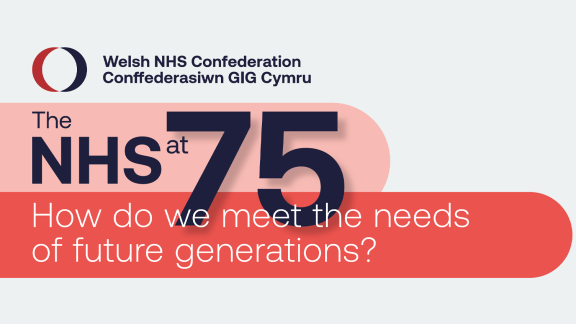Briefing for Members of the Senedd: Welsh Government Spending Priorities
Briefing sent to MSs ahead of a Finance Committee-led debate on the Welsh Government’s Spending Priorities
Key points
- The NHS currently faces its greatest financial challenge. The pandemic has led to a more complex picture for the health and care system, with pressures as a result of inflation, the elective care backlog, recruitment and retention of the health and care workforce, the rising cost-of-living and high demand on NHS and social care services, alongside public expectations and reducing confidence.
- While NHS leaders acknowledge the restrictions that the WG face, it is vital that the WG and MSs are open with the public to enable them to understand the pressures facing the NHS and the need to radically re-think how services are delivered in the long-term. Now is the time for a national conversation and the creation of an open dialogue with the public about the future health and care services.
- The NHS requires clear and more focused priorities, underpinned by a long-term vision for the system. This will need a tight focus on those issues which require immediate prioritisation and the financial support to enable it to happen.
- NHS leaders recommend that the following areas are prioritised:
- Capital: Developing a ten-year investment plan for service change to reshape NHS estates and infrastructure, making them more sustainable, reducing carbon emissions, maximising public assets and improving patient care outcomes.
- Revenue: Providing funding to cover inflationary pressures, addressing the backlog in elective care and supporting the maintenance of NHS estates and infrastructure.
- Workforce: Support the development of flexible and innovative workforce plans.
- Social care: Providing local authorities with ring-fenced allocations for social care, to meet the needs of their population.
- Prevention and early intervention: There must be an explicit shift of resources to prevention /early intervention; without this, the NHS is not sustainable.
- Inequalities: Publish a delivery plan that outlines the action being taken across all government departments to tackle inequalities.
- NHS and the economy: Recognising the significant contribution the NHS makes to wider economy, both nationally and locally.
- The response from NHS Wales organisations to the challenges of the pandemic serve to demonstrate that the health and care system can respond quickly and effectively to challenges when the resource framework and investment supports the direction of travel and aims to achieve the same outcomes.



